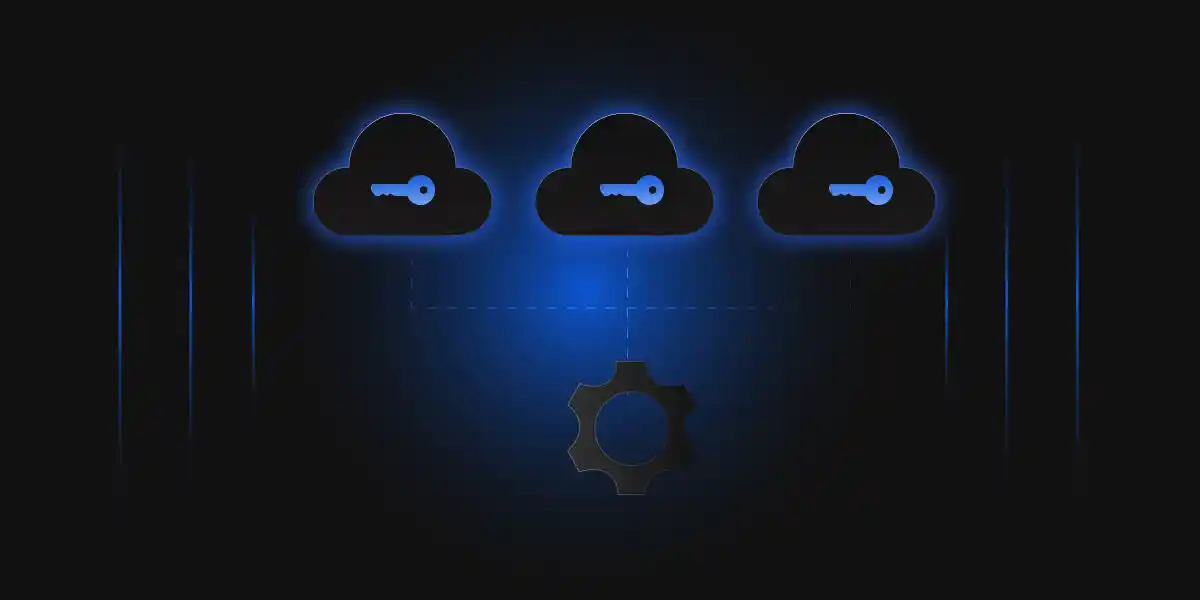Defining Multi-Cloud Key Management
Multi-Cloud Key Management is the process of using a vendor solution to provide a centralized and secure key management system across multiple cloud environments. It does not much matter whether the customer’s application architecture uses a private cloud, a public cloud, a hybrid cloud, or is distributed across multiple clouds — the framework remains the same. They can choose to move ahead with a single CSP or multiple CSP depending on its cloud strategy.
Multi-cloud key management utilizes a single solution that can provide a secure and centralized approach to manage keys in multiple cloud environments. The solution provided by the vendors can achieve higher FIPS levels.
In terms of resources, multi-cloud key management tends to use fewer resources as all crypto key lifecycle management activities are centralized to one key location. This centralized location relieves the user from logging into multiple cloud environments instead of only focusing on a centralized location. It also removes any custom API to be built for the solution as everything will be provided by the vendor for the solution.
Multi-Cloud Key Management is best suited for environments that need to talk to each other to work flawlessly. If the organization has contracted with a single cloud service provider, then the native KMS encryption approach may be the best choice. However, the majority of enterprises contract with multiple cloud service providers. In a multi-cloud environment, the technical and economic benefits of the Cloud are diminished by the complexity of requiring a different encryption key management method for each cloud environment. A strategy to simplify key management without adding administrative complexity and a consistent, centralized, and secure means to manage encryption keys-ideally. One specifically designed for multi-cloud environments is the suggested choice – Hence the hybrid key management approach.
The following diagram depicts the Multi-Cloud key management solution. There is the centralized management of accounts across all leading CSPs with custom API for integration and managing all encryption key lifecycle management activities from the central console. This eliminates the requirement of separate logins for different cloud vendor solutions.
Features
- Organizations are leveraging third-party providers who offer multi-cloud solutions, enabling organizations to “Bring” your key and “manage” your keys.
- Separate encryption keys from data encryption and decryption operations for compliance, thereby ensuring best security practices and control of your data.
- Utilizes BYOK services to deliver key generation, separation of duties, reporting, and key lifecycle management that fulfill internal and industry data protection mandates, all with FIPS 140-2-certified secure key storage.
- Keys are marked for automated key rotation on a per-cloud schedule.
- Each cloud service login is authenticated and authorized by the service provider.
- Choice of HSM depending on the requirement, i.e., using FIPS 140 level 4 vs. level 1 instead of using a standard native HSM, which does not provide a choice.
The Importance of Multi-Cloud Key Management
-
Data Security
In multi-cloud environments, data is often spread across various cloud providers. Multi-Cloud Key Management ensures that data remains encrypted and secure, regardless of its location.
-
Compliance
Data protection regulations and industry-specific compliance standards necessitate robust security measures. Multi-Cloud Key Management aids organizations in maintaining compliance when dealing with data distributed across multiple clouds.
-
Data Control
The ability to control encryption keys translates to control over your data, reducing the risk of unauthorized access or data breaches.
-
Business Continuity
In cloud service outages or security incidents, Multi-Cloud Key Management ensures data accessibility, supporting business continuity efforts.
Conclusion
Adopting multi-cloud strategies has become common for many organizations seeking to leverage diverse cloud service providers. However, this approach introduces unique challenges, particularly in data security. Multi-Cloud Key Management solves these challenges, ensuring data remains secure, compliant with regulations, and accessible across multiple cloud platforms.
Organizations can confidently navigate the complexities of multi-cloud environments by implementing best practices and embracing the benefits of Multi-Cloud Key Management. In a world where data security and privacy are paramount, Multi-Cloud Key Management is the bridge to a more secure and agile digital future.
Encryption Consulting’s Cloud Data Protection Services can help you choose the most appropriate solution for your organization. We can provide you with all the essential information that will help you make informed decisions for your organization. We can simplify Multi-Cloud Key Management for you to ensure that your encryption keys remain secure at all times.

